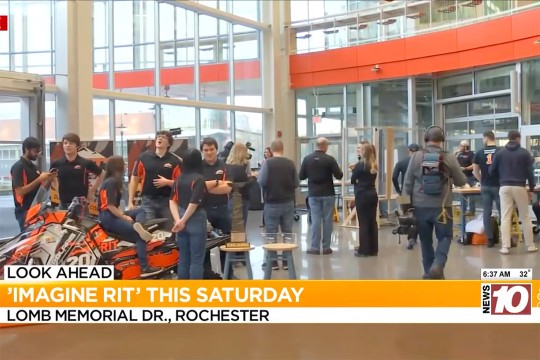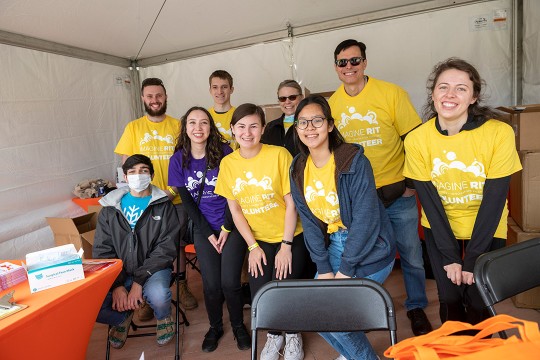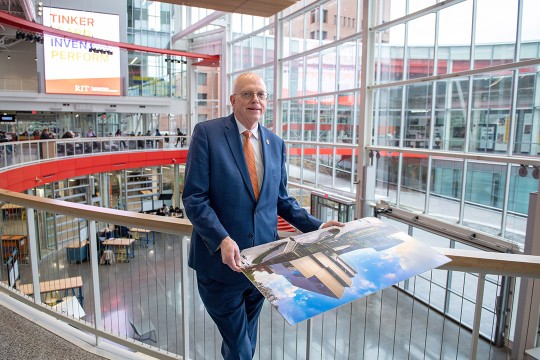Three Industry Notables To Speak At NTID Conference
One of the Internet’s founding fathers, Vint Cerf, a senior vice president for WorldCom, will join Yohei Sasakawa, president of The Nippon Foundation of Japan, and Alan Shaw, a scholar whose research focuses on applying constructionist models and theories to urban social settings. All three will be plenary speakers at the conference, expected to draw 300 people worldwide.
Cerf, a co-recipient of a U.S. National Medal of Technology, is widely known for co-designing the TCP/IP protocols and the architecture of the Internet. At WorldCom, Cerf and his team of architects and engineers design advanced networking frameworks including Internet-based solutions for delivering a combination of data, information, voice, and video services for businesses and consumers. Cerf is also working on the design of an interplanetary Internet in his role as a distinguished visiting scientist at NASA’s Jet Propulsion Laboratory.
President of The Nippon Foundation since 1989, Sasakawa spent decades in Japan’s business community before joining The Foundation, established by his father in 1979. He broadened its international philanthropic reach and established the eradication of leprosy as a major focus for The Foundation and a personal goal. He also serves as a trustee of foundations in Great Britain, Japan, Scandinavia, and the U.S. He holds a professorship from Yanbian University in China and honorary doctorates from The University of Bucharest, Romania, and the University of Cape Coast, Ghana.
Shaw, a graduate of MIT’s Epistemology and Learning Group, conducts research that uses technology to foster both social development and urban renewal. Used in Boston and Newark, N.J., his MUSIC (Multi-User Sessions in Community) software allows residents to develop local forums and online discussion groups focusing on community concerns, and to organize and manage neighborhood-based programs and social activities.
Shaw’s other major strand of research is titled Learning Through Social Apprenticeships, which focuses on helping at-risk teens foster responsibility and entrepreneurial skill development.
The Instructional Technology and Education of the Deaf Symposium is sponsored by The Nippon Foundation of Japan through the Postsecondary Education Network International (PEN-International), a program establishing a cooperative network of educational institutions worldwide that provides postsecondary education to students who are deaf and hard of hearing, using information and instructional technologies, and faculty training.
The first and largest technological college in the world for students who are deaf and hard of hearing, NTID, one of eight colleges of RIT, offers educational programs and access and support services to 1,100 students from around the world who study, live, and socialize with 14,000 hearing students on the RIT campus. Web address: www.rit.edu/NTID.
For more information about the Symposium, visit http://www.rit.edu/~techsym or contact E. William Clymer, symposium coordinator, at techsym@rit.edu














